Introduction: A Symbolic Figure of the Declining Southern Aristocracy
Quentin Compson, the intellectual, neurotic, and introspective son of the Compson family created by William Faulkner, plays a crucial role in classic masterpieces including The Sound and the Fury and Absalom, Absalom!. Set against the backdrop of the declining aristocratic society of the post-Civil War American South, Faulkner depicts through Quentin a human figure struggling with obsession over lost glory, the weight of time, and the gap between moral ideals and reality.
Quentin transcends being merely a fictional character to become positioned as a symbolic existence representing the spiritual crisis of early 20th-century Southern American society. Portrayed as a Harvard freshman, his consciousness is haunted by his father’s nihilism, the destructiveness of time, his own inadequacy, and above all, his sister Caddy’s lost virginity. This report will analyze in detail his portrayal in The Sound and the Fury and Absalom, Absalom! to illuminate Quentin’s multi-layered character in Faulkner’s literature.
Chapter 1: Quentin’s Inner World in The Sound and the Fury
Obsession with Time and Despair
In contrast to Benjy, who has no awareness of time, Quentin is obsessed with and haunted by time, viewing suicide as his only means of escape. The second section, depicting his final day at Harvard University on June 2, 1910, highlights the severity of his spiritual crisis through Quentin’s stream of consciousness.
For Quentin, time is not merely a physical concept but a painful bridge connecting past glory with present corruption. He attempts to destroy his watch, but still cannot stop the progression of time. This compulsive concern with time reflects the confusion in his inner world and his intense desire to escape from reality.
Complex Love for Caddy
The primary driving force of Quentin’s section is his struggle with Caddy’s sexual corruption. Quentin’s feelings toward his sister Caddy (Candace) include complex and pathological obsessions that exceed the bounds of sibling love. Her loss of purity represents for him not merely moral degradation, but the fundamental collapse of the Compson family’s honor and identity.
While Caddy believes the entire Compson family is under a curse and is willing to accept acts such as suicide or incest, Quentin seeks to find meaning in life through orderly existence, making such acts seem meaningless to him. This contrast demonstrates the fundamental difference in the siblings’ worldviews.
Fixation on the Concept of Honor
Quentin is the only character in the novel who cares about honor, justice, and love, and the only one who explores life’s complexities and seeks to find orderly meaning from living. However, this noble idealism becomes the factor that leads him to destruction.
His concept of honor, deeply rooted in Southern chivalric spirit, cannot accept the complexity and compromise of the real world. He seeks purity and moral perfection, which are impossible ideals to achieve in modern society.
Anxiety about Masculinity
Quentin makes many attempts to overcome his desire to lack masculinity but fails, and his inability to use knives or guns and his failure to carry out threats he makes further diminish his self-perception. This portrayal shows his inner weakness and feelings of inferiority toward the traditional Southern masculine ideal.
He desires to be an ideal gentleman, but in actual situations, he hesitates at decisive moments and experiences powerlessness. This contradiction intensifies his mental anguish.
Chapter 2: The Path to Suicide—Psychological Analysis
Influence of Father’s Nihilism
Quentin’s despair is greatly influenced by the nihilistic worldview of his father, Jason Compson III. The father preaches to his son about life’s meaninglessness and the worthlessness of moral effort. This cynical philosophy becomes fatal poison for the idealistic Quentin.
The father’s words fundamentally overturn Quentin’s efforts to find meaning in life and destroy his spiritual foundations. The father’s resignation and despair toward his son, who pursues ideals, becomes an important factor encouraging Quentin’s suicidal tendencies.
Suicide as Escape from Reality
On June 2, 1910, the day his section unfolds, Quentin prepares for suicide and ultimately takes his own life by drowning in the Charles River. For him, death is the ultimate means of escape from unbearable reality.
This struggle greatly affects his life, and he ultimately chooses suicide as hope for escaping reality. Through death, he believes he can stop the flow of time and be freed from change and corruption.

Complexity of Internal Dialogue
Quentin’s stream of consciousness is one of the finest examples of Faulkner’s innovative literary techniques. His thoughts freely move between past and present, forming a complex psychological landscape where memory and reality intermingle.
Through this internal monologue, readers witness the depth of his mental anguish and the gradual breakdown of logical thinking. His consciousness becomes fragmented, and the process of gradually losing his ability to grasp reality is depicted.
Chapter 3: Quentin’s Role in Absalom, Absalom!
Position as Historical Narrator
In Absalom, Absalom!, Quentin functions not merely as a protagonist but as an important mediator transmitting past stories to the present. In The Sound and the Fury, it becomes clear that Quentin has a strong interest in his relationship with the past and the reasons for modern people’s predicament, constantly thinking about what important ancestors mean to him.
Connection to the Sutpen Family Story
In the process of hearing the grand and tragic story of Thomas Sutpen, Quentin discovers similarities with his own family’s fate. The ambition and destruction of the Sutpen family overlap with the decline of the Compson family, symbolizing the destiny of Southern aristocratic society as a whole.
Isolation at Harvard
The environment of a Northern university highlights Quentin’s identity as a Southerner. He is placed in the position of explaining and defending the Southern past, while simultaneously being crushed by the burden of that past.
Through dialogue with his roommate Shreve, Quentin externalizes his inner struggles while narrating Southern stories.
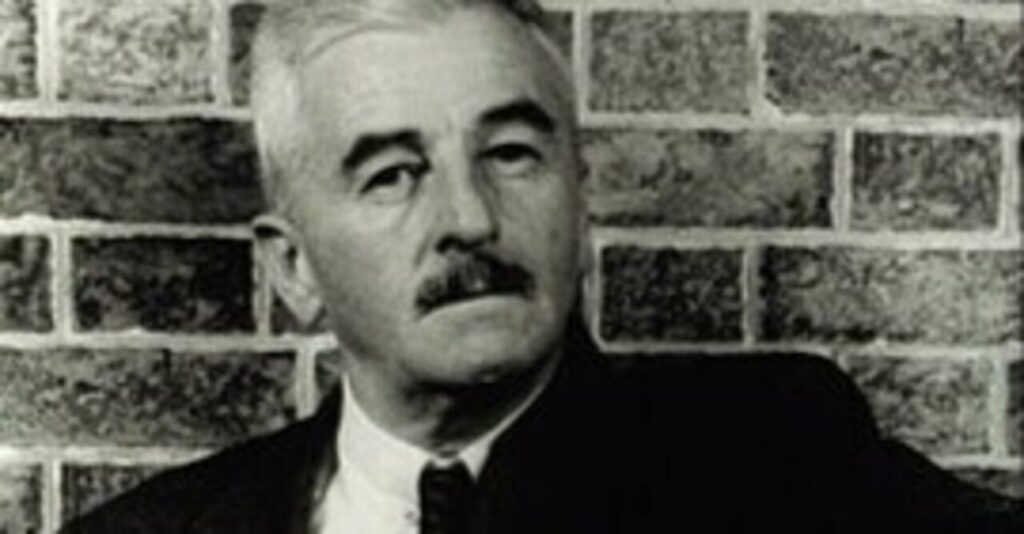
Chapter 4: Quentin as Symbol of Southern Society
The Heritage and Burden of Aristocracy
The appendix shows that the Compson family is descended from Scottish Quentin MacLachan, who fled the Battle of Culloden, acquired land from the Chickasaw tribe in America and established a plantation, but declined after the South’s defeat in the Civil War.
The Compson family is established by Faulkner as direct descendants of plantation aristocracy, inheritors of their values and traditions, depicted as beings responsible for the survival (or ultimate extinction) of this Southern aristocratic system. Quentin is the most conscious bearer of this burdensome legacy.
Inability to Adapt to a Changing South
The South of the early 20th century was experiencing rapid social change, but Quentin cannot adapt to the values of the new era. His idealism is fixated on past glory and refuses to accept the reality of change.
The Tragedy of Moral Idealism
Quentin’s tragedy lies in having high moral ideals while lacking realistic means to achieve them. His obsession with purity cannot function in the complex, compromise-filled real world.
Chapter 5: Innovation in Psychological Portrayal in Faulkner’s Literature
Stream of Consciousness Technique
Faulkner’s style is characterized by frequent time shifts, narrator changes, unconventional punctuation and sentence structure, and stream of consciousness techniques that reveal characters’ internal thoughts to readers. Quentin’s section is one of the most effective uses of this technique.
Complexity of Time Structure
In Quentin’s consciousness, time does not flow linearly but has a multi-layered structure where memory and reality intersect. Past events invade present consciousness, destroying chronological logic.
Use of Symbolic Language
To portray Quentin’s inner world, Faulkner makes extensive use of symbolic images such as water, shadows, and clocks. These symbols visually express his psychological state and existential anxiety.
Chapter 6: Interpretation of Quentin in Modern Criticism
Psychoanalytic Interpretation
Quentin’s incestuous desires and suicidal tendencies are often interpreted from a Freudian psychoanalytic perspective. His obsession with his sister is understood as a variation of the Oedipus complex.
Sociological Reading
From the perspective of Southern society’s class system and racial issues, Quentin is interpreted as a figure embodying the guilt and powerlessness of the privileged class. His anguish is both personal and a reflection of structural social problems.
Existentialist Perspective
In the context of modern existentialist philosophy, Quentin is read as an archetype of modern man facing a crisis of meaning. His despair symbolizes the absurdity of human existence in a godless world.
Chapter 7: Literary Historical Significance and Influence
Contribution to Modernist Literature
The creation of Quentin as a character opened new possibilities for character portrayal in 20th-century modernist literature. The integration of inner complexity and psychological realism greatly influenced later writers.
Lineage of Southern American Literature
Quentin is a typical embodiment of the theme of “nostalgia for lost ideals” in Southern American literature. His character image has been retold and developed in various forms by later Southern writers.
Influence on World Literature
Faulkner’s portrayal of Quentin has been studied and imitated by writers around the world, contributing to the development of techniques for inner portrayal in modern literature.
Chapter 8: Quentin’s Duality—Idealism and Escapism
Aspect as Intellectual Seeker
Quentin is portrayed as an intellectual young man with deep cultivation and keen insight. His studies at Harvard University demonstrate sincere efforts toward intellectual improvement. He is well-versed in literature, history, and philosophy, possessing the ability to develop complex thoughts.
Lack of Action
However, in contrast to his intellectual abilities, he shows decisive weakness in actual action. He becomes stuck in acts of reflection, thinking too much about a subject to complete any action. This divergence between knowledge and action forms the core of his tragic character.
Obsession with an Idealized Past
Quentin has a strong tendency to idealize the past and contrast it with the corrupt reality of the present. This excessive idealization makes realistic problem-solving difficult and plunges him into powerlessness.
Chapter 9: Family Relationship Dynamics and Quentin’s Position
Relationship with Mother
His relationship with his mother Caroline has an important impact on Quentin’s character formation. The mother’s neurotic tendencies and self-pity encourage her son’s emotional instability.
Contrast with Siblings
The contrast with his younger brother Jason’s realistic and cruel character and youngest brother Benjy’s intellectual disability highlights Quentin’s intermediate and complex position. He is portrayed as the most sensitive and simultaneously most vulnerable presence in the family.
Codependent Relationship with Caddy
His relationship with his sister Caddy includes mutually dependent and unhealthy aspects. Quentin attempts to maintain his own identity by protecting her purity, but this attempt ultimately fails.
Chapter 10: Themes of Death and Rebirth
Symbolism of Water
Quentin’s method of suicide—drowning—is connected with the purifying action of water and the symbolism of rebirth. For him, death means purification from corrupt reality and return to an idealized past.
Liberation from Time
Through suicide, Quentin hopes to be liberated from the bonds of time. For him, death is an escape into eternal present, the final refuge from change and decay.
Meaning of Atonement
His death also has meaning as vicarious atonement for his family’s sins. Through self-sacrifice, he makes a final attempt to restore his family’s honor.
Conclusion: Enduring Literary Value and Contemporary Significance
Quentin Compson is one of the most complex and fascinating characters created by William Faulkner. The message of The Sound and the Fury is that moral and social corruption can destroy even once-prestigious families, and ultimately, as the Compson family declines morally and socially, Quentin is positioned as the final bearer of idealistic values.
His character embodies the following universal themes:
1. The Gap Between Ideals and Reality: He depicts the tragedy of humans who hold high ideals but fail to realize them in the real world.
2. The Weight of Time and Memory: He expresses the anguish of humans torn between past glory and present decline.
3. Identity Crisis: He shows the confusion of individuals who lose themselves between traditional values and modern reality.
4. The Boundary Between Love and Obsession: He explores the difference between healthy affection and pathological obsession.
5. The Divergence Between Intelligence and Action: He depicts the contradiction of humans who possess excellent intellectual abilities but are powerless in actual action.
Even in modern times, Quentin’s anguish is felt as a familiar problem by many readers. In a rapidly changing society, the difficulties of individuals trying to maintain traditional values, the confusion young idealists face when confronted with the complexity of reality, the pressure of family relationships—the problems he experiences have contemporary universality.
Through the character of Quentin, Faulkner deeply explored the spiritual crisis of humanity and opened new horizons in literary psychological portrayal. This tragic hero he created will continue to be studied and loved by many readers and researchers as one of the most memorable figures in American literary history.
Quentin Compson’s story transcends mere individual tragedy to raise fundamental questions about human existence. The beauty and danger of pursuing ideals, the complexity of relationships with the past, the distinction between love and obsession, and the difficulty of survival in the real world—all these elements are condensed in the short life of one young man. Faulkner’s literary genius lies in crystallizing such universal themes into concrete and convincing character portraits.
Quentin’s legacy does not end with his death but continues to generate enduring questions and empathy in readers’ hearts. His story possesses immortal literary value that prompts deep reflection on ideals and reality, past and present, love and obsession in our own lives.
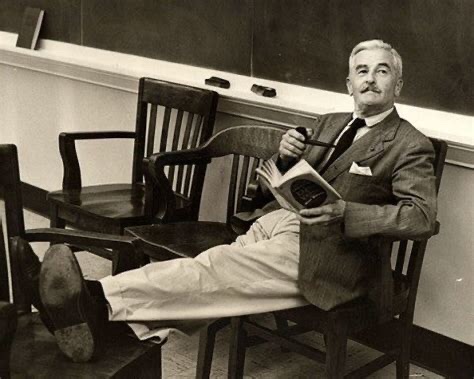
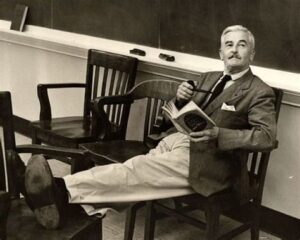
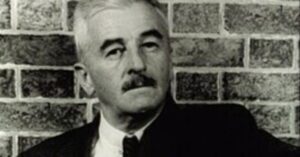

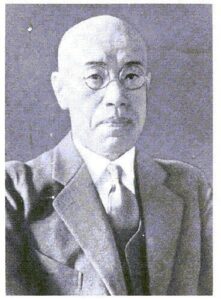


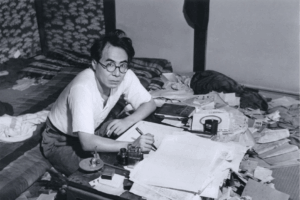

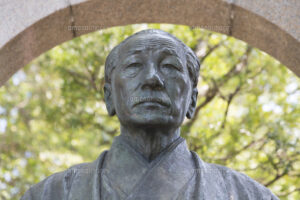


コメント